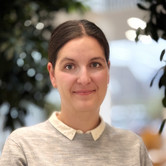Practical Information
You should start planning your exchange well in advance. Typically, you should start the planning process about 1 - 1,5 years before your planned departure if you are going on a longer exchange. This is because there are many things that need to be dealt with before you are able to go.
Studies or traineeships can be at institutions, which are approved by University College Absalon. These are typically our partners. On other occasions, you are allowed to go to other places/institutions, if the quality and safety has been approved.
We will not arrange exchanges (studies and traineeships) in countries or regions, where the Ministry of Foreign Affairs in Denmark discourages travelling to.
Please check the Danish foreign travel advice webpage for the country you are wanting to go to. These recommendations are not at the moment available in English, so we refer to the British foreign travel advice website. Alternatively, you can always contact the International Office or your international coordinator, if you have doubts.
Use of Absalon's digital platforms abroad
Due to data security, it is not possible to access Absalon's digital platforms (mail, Itslearning, etc.) in all countries. To be sure that you can log on to the platforms while you are abroad, you must therefore install eduVPN on your computer before you leave.
Academic credit transfer
Before you go on a traineeship, it needs to be clear, how many credits, the traineeship will provide. This is agreed with your international coordinator. The length of your stay needs to be stated in a "Training Agreement and Quality Commitment".
Similarly, it also needs to be made clear how many credits your study abroad will give you. You need to talk with your international coordinator about this. Please remember, countries outside Europe may not operate with the same credits system (ECTS), as we do. The credits need to be stated in your Learning Agreement.
Remember to get a Transcript of Record from the host institution before you leave, so the credits can be transferred.
Accommondation
If you are doing a study abroad, the host institution will usually be able to help you find accommodation on campus. If they are not able to help you, then there are several options for you:
- You can leave well in advance, and attempt to find accommodation yourself.
- You can search the host university's webpage for tips of finding accommodation.
It varies from person to person, how and where you wish to live during your stay. Some like staying on campus, whereas others prefer sharing a flat with other students (private accommodation providers).
This webpage might also be useful.
Vaccinations
For clinical studies, there can be some requirements regarding vaccinations in some countries - both in and outside of Europe.
Generally, if you are travelling outside of Denmark, you may need to be vaccinated against diseases found in other places around the world.
Please visit Statens Serum Institut for more information.
Visa and residence permit
Make sure your passport is valid the entire period of your stay - some countries even require it to be valid six months longer than your stay. Please also check the visa requirements for the country you are wanting to visit.
Please remember, it is your own responsibility to make sure you are aware of the rules and regulations relating to VISA regulations and residence permits.
It might be useful for you to visit the webpage of the embassy of the country you are visiting.
If you have any questions, you can always contact the International Office at international@pha.dk
Language preparations
It is a good idea to start language preparations early. Naturally, you might be going to prepare your foreign language skills, but if you need to use all your energy in the beginning to understand what is being said, your academic performance might suffer.
If English is not your first language:
In many English-speaking countries, the universities requires you to pass a language test to get in. You should allow plenty of time to get this done, before the planned exchange.
Below you will find some links to language tests and language courses:
EILC language courses (European languages)
Insurance
Read more about insurance here.


